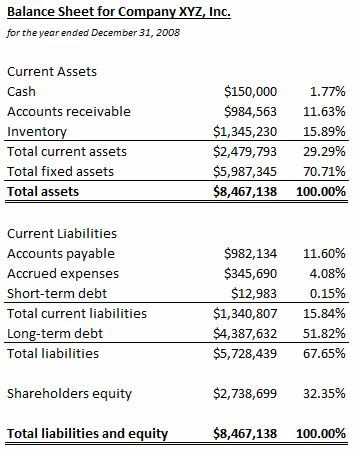
Second, train staff so they have the skills to effectively interact with AI tools, building analytical capabilities that capitalize on the technology. Giving finance staff increased understanding of AI will also be critical in ensuring the proper security, controls, and appropriate use of the technology. Without the right gen AI operating model in place, it is tough to incorporate enough structure and move quickly enough to generate enterprise-wide impact. To choose the operating model that works best, financial basics of business accounting institutions need to address some important points, such as setting expectations for the gen AI team’s role and embedding flexibility into the model so it can adapt over time. That flexibility pertains to not only high-level organizational aspects of the operating model but also specific components such as funding. We recently conducted a review of gen AI use by 16 of the largest financial institutions across Europe and the United States, collectively representing nearly $26 trillion in assets.

Appendix: The AI technology portfolio12
An f5 case study provides an overview of how one bank used its solutions to enhance security and resilience, while mitigating key cybersecurity threats. The company’s applications also helped increase automation, accelerate private clouds and secure critical data at scale while lowering TCO and futureproofing its application infrastructure. AI in finance significantly automates routine tasks, which plays a crucial role in enhancing operational efficiency and accuracy. By taking over repetitive and time-consuming tasks, AI allows human employees to focus on more complex and strategic issues. By analyzing large datasets quickly and accurately, AI enables financial institutions to make more informed decisions faster than traditional methods.
Artificial intelligence
- In contradiction with past research, a text mining study argues that the most important risk factors in banking are non-financial, i.e. regulation, strategy and management operation.
- Additionally, Entera can discover market trends, match properties with an investor’s home and complete transactions.
- Certain services may not be available to attest clients under the rules and regulations of public accounting.
- The company’s platform uses natural language processing, machine learning and meta-data analysis to verify and categorize a customer’s alternate investment documentation.
- AI-powered translation helps global financial institutions serve customers in multiple languages, enhancing accessibility and user experience.
QuantumBlack, McKinsey’s AI arm, helps companies transform using the power of technology, technical expertise, and industry experts. With thousands of practitioners at QuantumBlack (data engineers, data scientists, product managers, designers, and software engineers) and McKinsey (industry and domain experts), we are working to solve the world’s most important AI challenges. QuantumBlack Labs is our center of technology development and client innovation, which has been driving cutting-edge advancements and developments in AI through locations across the globe. “A detailed account of the literature on AI in Finance”, the literature on Artificial Intelligence in Finance is vast and rapidly growing as technological progress advances. There are, however, some aspects of this subject that are unexplored yet or that require further investigation. In this section, we further scrutinise, through content analysis, the papers published between 2015 and 2021 (as we want to focus on the most recent research directions) in order to define a potential research agenda.

Harnessing the Power of AI for Financial Forecasting
Existing regulatory and supervisory requirements may need to be clarified and sometimes adjusted to address some of the perceived incompatibilities of existing arrangements with AI applications. The G20 Riyadh Infratech Agenda, endorsed by Leaders in 2020, provides high-level policy guidance for national authorities and the international community to advance the adoption of new and existing technologies in infrastructure. This work highlights the important role technology can play in helping countries make well-informed decisions and achieve more efficient financial outlays, by mobilising private sector investment, by enhancing service delivery and by achieving environmental, social and economic benefits. The use of AI to build fully autonomous chains would raise important challenges and risks to its users and the wider ecosystem. In such environments, AI contracts rather than humans execute decisions and operate the systems and there is no human intervention in the decision-making or operation of the system. In addition, the introduction of automated mechanisms that switch off the model instantaneously (such as kill switches) is very difficult in such networks, not least because of the decentralised nature of the network.
Discover content
A quite interesting paper surveys the relationship between face masculinity traits in CEOs and firm riskiness through image processing (Kamiya et al. 2018). The results reveal that firms lead by masculine-faced CEO have higher risk and leverage ratios and are more frequent acquirers in MandA operations. The second sub-stream investigates the use of neural networks and traditional methods to forecast stock prices and asset performance.

AI can even help make pricing personalized, using real-time insights about individual customer preferences, market changes, and competitor activity to optimize price and discounts. The list of ways AI can help increase efficiency and productivity in the finance department is already lengthy—and it’s just the beginning. The automation of numerous financial processes—such as data collection, consolidation, and entry—is already a notable add. It helps shift the role of finance from reporting on the past to focusing on the future, through analysis and forecasts that serve the company.
As financial-services companies navigate this journey, the strategies outlined in this article can serve as a guide to aligning their gen AI initiatives with strategic goals for maximum impact. Scaling isn’t easy, and institutions should make a push to bring gen AI solutions to market with the appropriate operating model before they can reap the nascent technology’s full benefits. For this purpose, sentiment analysis extracts investor sentiment from social media platforms (e.g. StockTwits, Yahoo-finance, eastmoney.com) through natural language processing and data mining techniques, and classifies it into negative or positive (Yin et al. 2020).
83% of millennials and 79% of Generation Z respondents said they would trust a robot over their organization’s finance team. Millennial employees are nearly four times more likely than Baby Boomers to want to work for a company using AI to manage finance. AI is proving to be more than a buzzy technology fad and one of those rare advancements—like the internet and cloud computing—that promise to revolutionize the business landscape. AI helps enhance customer experience and retention by letting businesses deliver personalized, proactive, and integrated interactions across various touchpoints.
AI is being leveraged in various facets of the financial industry to streamline operations and enhance user experiences. It aids in personalizing financial advice, managing assets, automating manual processes, and securing sensitive financial information against fraud. In addition, AI tools are also being used in the banking sector where they help banks assess creditworthiness of applicants through detailed analysis of their financial history thus reducing loan defaults while increasing profitability at the same time. Whether you’re a CFO, an accountant, a financial https://www.adprun.net/what-are-liabilities-in-accounting/ analyst or a business partner, artificial intelligence (AI) can help improve your finance strategy, uplift productivity and accelerate business outcomes. Though it may feel futuristic, advancements such as generative AI and conversational AI technology can benefit Finance & Accounting (F&A) now. Insider Intelligence estimates both online and mobile banking adoption among US consumers will rise by 2024, reaching 72.8% and 58.1%, respectively—making AI implementation critical for FIs looking to be successful and competitive in the evolving industry.
At the same time, through crowdsourced development communities, they were able to tap into a wider pool of talent from around the world. While many financial services companies agree that AI could be critical for building a successful competitive advantage, the difference in the number of respondents in the three clusters that acknowledged the critical strategic importance of AI is quite https://www.personal-accounting.org/ telling (figure 3). The use of AI in finance is gaining traction as organizations realize the advantages of using algorithms to streamline and improve the accuracy of financial tasks. Step through use cases that examine how AI can be used to minimize financial risk, maximize financial returns, optimize venture capital funding by connecting entrepreneurs to the right investors; and more.

